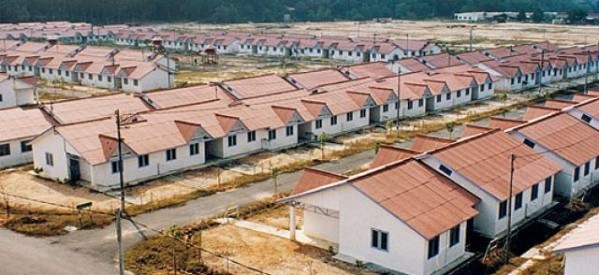The Central Bank of Nigeria (CBN), on Tuesday, unveiled the framework for accessing N200bn fund for the construction of 300,000 housing units across the 36 states, under the Federal Government’s Social Housing Programme.
The construction finance facility, which is part of the government’s Economic Sustainability Plan 2020, according to the document, is tagged Family Home Finance Initiative (FHFI) aimed at creating 1.5m jobs in five years targeting an estimated population of 900,000 people.
It is also aimed at revitalising and boosting local manufacturing of construction materials, as the housing units are expected to utilize at least 90% locally manufactured inputs and in the process conserve scarce foreign exchange.
The financing for the project, according to the initiative, will be released to the Family Homes Funds Limited, being the eligible obligor, on what the apex bank called project basis.
The term loans will be granted to low income individual for a tenor of three years at an interest rate of 5% per annum to construct social housing units, just as repayment shall be in not more than three instalments within the tenor of the facility.
It defined a project as “cluster of homes in the same geographical location and covered with the same title documents and approvals.
To access the facility however, the FHF is expected to apply to the CBN Governor, attaching copies of the Federal Executive Council (FEC) approval, Guaranty document from the Federal Ministry of Finance, and a comprehensive project plan.
At the implementation stage, the FHF is expected to open a dedicated project account with a bank of its choice, submit funding request to the technical advisor appointed by the apex bank, in batches tied to specific projects, with each batch in the same location.
Each batch must be accompanied by written request for the release of funds, evidence of land availability from state government, FCT, government agencies or cooperatives, site plan, building approval from the relevant authority, project delivery timeline, repayment plan, and any other document as may be required by the CBN or the technical adviser. The technical adviser will receive and appraise the proposal and make recommendation to the CBN, and if approved, release the approved sum to the dedicated account of the FHF.
Work is expected to begin at the site within two weeks of receipt of the funds from the CBN, while the FHF shall ensure the use of labour from the project catchment area, local materials exclusively, except where not available, and allow the adviser or any CBN representative access to the project site and information as deemed necessary for monitoring.








